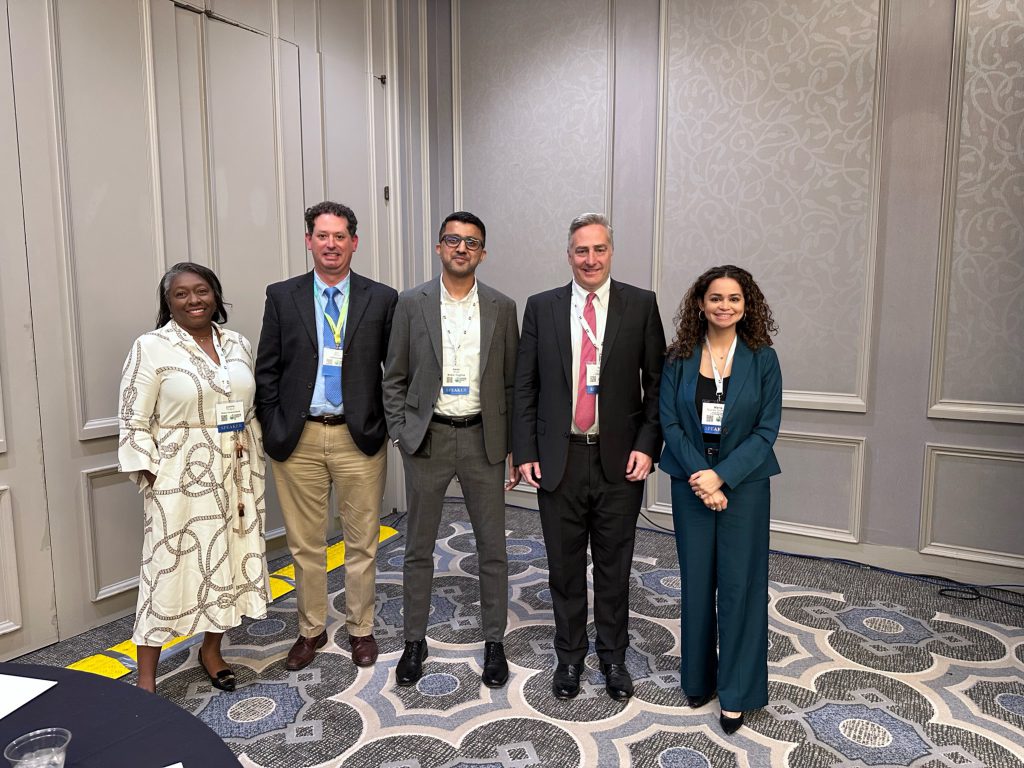
At the 2023 Carbon Tracking and Reporting Conference in Houston, Energy Workforce & Technology Council President Tim Tarpley moderated a panel with Maria Suarez-Simmons, Energy Workforce; Joe Hill, Vallourec; Awes Khan, Baker Hughes; and Jamila Piracci, Roos Innovations. The panel focused on federal policies, including the Inflation Reduction Act (IRA), permitting, and the potential SEC climate disclosure rules and the impacts these have on emissions.
Each aspect of current or upcoming U.S. policy could have significant impacts on emissions and subsequently on the energy services and technology sector.
As Energy Workforce has previously mentioned, the IRA presents a number of opportunities for companies interested in tax credits related to technology development and deployment. The panelists discussed how they have seen the IRA impact the way businesses are thinking about hiring needs, domestic manufacturing and supply chains.
However, energy projects throughout the United States are tied up in the lengthy and antiquated permitting process. Suarez-Simmons mentioned that the BUILDER Act in the H.R. 1 bill is the most likely to make it through the negotiation process with the Senate and possibly be included in the debt ceiling discussions this summer. Energy Workforce is actively engaged in current conversations on Capitol Hill regarding permitting reform in the current Congress, emphasizing its importance for all types of energy projects and infrastructure.
Energy Workforce Member Companies are front and center in reducing carbon emissions. Hill spoke to how Vallourec is focused on reducing its emissions and engaging suppliers, allowing them to become virtually neutral in carbon emissions for their steel production – a leader in the industry and critical supplier for industries globally. Kahn also discussed Baker Hughes’ carbon goals including being one of the first in the oil and gas industry to make a net-zero carbon commitment by reducing emissions by 50% by 2030 and net-zero by 2050.
In addition to policy frameworks that present carrots and sticks to mitigate emissions, Suarez-Simmons also discussed concerns with the proposed SEC Climate Change Disclosures rule.
“The inclusion of Scope 3 emission disclosures would create serious uncertainty in the markets and potentially make companies liable to disclosure activities far down the value chain of their products,” she said. “Our sector is at the forefront of technology development and deployment and revolutionizing the energy industry to meet 21st century needs. We want new metrics and ESG disclosures to have real and achievable goals that reduce emissions, not burdensome overregulation that does little to improve climate outcomes.”
Representatives from Member Companies NOV, Oceaneering, SLB and TechnipFMC also spoke at the conference.
If you are interested in Energy Workforce’s Government Affairs Committee and its engagement in Federal and State policy, contact Maria Suarez-Simmons.
Maria Suarez-Simmons, Senior Director Energy Policy, writes about industry-specific policies for the Energy Workforce & Technology Council. Click here to subscribe to the Energy Workforce newsletter, which highlights sector-specific issues, best practices, activities and more.




